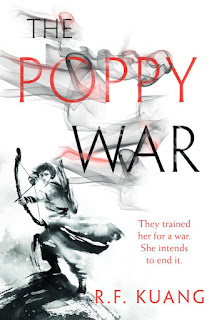 |
| “You do not know me, and rest assured, you never shall.” — Lady Whistledown in Netflix Bridgerton |
Today I want to examine gossip by exploring its link to storytelling. Yes, even Fantasy Fiction can utilize this age-old human proclivity to talk about others behind their backs. Some novels even have plots that revolve solely around the revelation of such unverified "truths".
For the purpose of this post, I am defining gossip as talking or writing about other people's business in a sensational, judgmental and/or unverified way. In writing, it's easy to see the usefulness of this tool, but the question is, why do we do it in the first place? What's the fascination?
Why We Gossip
Gossip in the Modern World
Gossip in Storytelling
As Cynthia Ozick says in The Novel's Evil Tongue: Gossip is the steady deliverer of secrets, the necessary divulger of who thinks this and who does that, the carrier of speculation and suspicion.
In this capacity, gossip becomes one of the writer's best tools.
By using gossip in dialogue and plot, authors can inform the reader of many things without bogging down the narrative in information and description. As well, this kind of dialogue can help readers draw their own conclusions as opposed to being spoon-fed the story one bite at a time.
 |
| Alice Sun can turn invisible, and oh the secrets she learns. |
Here's an example from Crown of Bones
From Marcus's POV, he and his company ride through the rolling hills of Palrio on a dangerous journey to the Isle of Aku. Belair, an unknown peer who has just joined them, strikes up a conversation with the reluctant Marcus.
Note what you learn about all five characters discussed in this snippet without even trying.
***
“They’re adorable,” Belair says, nodding to Samsen and Piper as they ride ahead, out of earshot.
“I guess.” Adorable? Why are we talking about this?
“There’s a story there, I’ll wager.” Belair sounds more than a little curious. “She’s older than him, right?” He asks of Piper, but his eyes stay on Sam.
“I... ” I’d rather discuss anything else, training on Aku, his warrior phantom, navigating these enemy lands.
Ash, who rides on my other side, clears her throat. The sound is a familiar one. It’s her way of telling me to be nice to our new company member, no matter that I resent him.
I nod my head toward the healer. “Ten years ago, when Piper was sixteen, she’d just earned her orange robes…”
“That’s young.”
“It is, and well deserved. Anyway, she was in the hills behind Baiseen, gathering herbs when a band of Gollnarians cornered her.”
“They were far from home.”
“A scouting party. She was badly outnumbered.”
His brows lift. “What happened?”
“Samsen, thirteen at the time, was hunting nearby. He heard the fight and sent his phantom in.”
“Form?”
“Golden eagle, talons like grappling hooks. But by the time Samsen reached her, his phantom was pinned under a Gollnar winged-demon, and Piper was at the bottom of a ravine, her snake chopped in half, going to ground.”
“How did they survive?”
“He doesn't like to talk about it, but from what I gathered, Sam stayed in phantom perspective, in spite of his wounds. Fought them off. Killed or cut up every last one. By then, he was bleeding so badly he nearly died.”
Belair rests his eyes ahead as his face reddens. “Truely bonded to each other then?”
“Truely.”
“Ahh,” he exhales as if impressed and disappointed at the same time. “So be it.”
***













